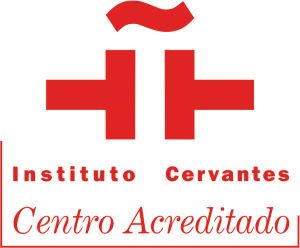Yes, they exist! And they can be a real headache… if you don’t know them well.
These mischievous language twins are called homophones: they sound the same but are spelled differently and mean completely different things. Usually, this isn’t a big deal when speaking (no one’s going to stop you mid-conversation for mixing up “vaya” and “valla”!), but in writing… watch out, because that’s where they can really trip you up.
At MaestroMio, where learning Spanish means uncovering all its fun little twists, we’ll walk you through some of the most common homophones — with simple examples, clear explanations… and yes, even a few jokes along the way!
Haber / A ver
These two are like twins everyone confuses.
- Haber: It’s an auxiliary verb used to form compound tenses. It can also be a noun (though less common).
Example: Tiene que haber comida en la nevera, ¡tengo hambre!
👉 Common uses: He comido, ha llovido, hemos llegado.
👉 Also used in obligation phrases: Tiene que haber soluciones. - A ver: An expression we use to ask for something or to introduce an idea.
Example: A ver si mañana no llueve.
💡 Many native speakers write this wrong (“haber si vienes”), so watch out!
Hecho / Echo
Here the star is the H: silent but essential.
- Hecho: Past participle of the verb hacer (to do/make).
Example: He hecho la tarea.
Also: ¡Qué buen hecho histórico! (Yes, it can also be a noun). - Echo: Present tense of the verb echar (to throw/put).
Example: Siempre echo leche al café.
✍️ Tip: If you can replace it with “throw” or “put,” it’s written without H.
Halla / Haya / Aya
Three for the price of one! And all different.
- Halla: From the verb hallar (to find).
Example: El detective halla una pista clave. - Haya: Can be the verb haber in present subjunctive or a tree.
Example: Espero que haya pizza.
Tree: El haya es de hojas caducas (yes, it exists, even if you don’t see it in the city). - Aya: A person who takes care of children (a nanny).
Example: La aya contaba cuentos antes de dormir.
Valla / Vaya / Baya
A true phonetic party!
- Valla: A fence, wall, or billboard.
Example: Saltó la valla para recuperar la pelota. - Vaya: Form of the verb ir in subjunctive or an expression of surprise.
Example 1: Espero que vaya al médico.
Example 2: ¡Vaya sorpresa me diste!
(Two meanings in one!) - Baya: A small, juicy fruit (berry).
Example: La uva es una baya deliciosa.
Botar / Votar
Be careful not to “throw away” your right to vote!
- Botar: To throw, toss, or discard something.
Example: Voy a botar estos papeles. - Votar: To cast your vote in an election.
Example: Vamos todos a votar el domingo.
Bello / Vello
Don’t mess up or you might be telling someone their hair is very… fine.
- Bello: Beautiful.
Example: Qué bello paisaje. - Vello: Fine body hair.
Example: Me afeité el vello de los brazos.
Cien / Sien
A number and a part of your head—nothing to do with each other!
- Cien: Number 100.
Example: Tengo cien monedas, pero todas de chocolate. - Sien: Side of the head (temple).
Example: Me duele la sien de tanto pensar.
Cerrar / Serrar
Be careful when you say you’re going to “serrar la puerta”… it might sound violent.
- Cerrar: To close or shut something.
Example: Voy a cerrar la tienda. - Serrar: To cut with a saw.
Example: Voy a serrar esta tabla para hacer una estantería.
Grabar / Gravar
They seem like cousins, but one records podcasts and the other charges taxes.
- Grabar: To record sounds or images.
Example: Voy a grabar un vídeo para mis estudiantes. - Gravar: To impose a tax or fee.
Example: Van a gravar las bebidas azucaradas.
Tuvo / Tubo
A classic autocorrect error.
- Tuvo: Past tense of the verb tener (to have).
Example: Ella tuvo una gran idea.
👉 (Yo tuve, tú tuviste, él tuvo, nosotros tuvimos…) - Tubo: Cylindrical object (tube).
Example: El tubo de la ducha está roto.






